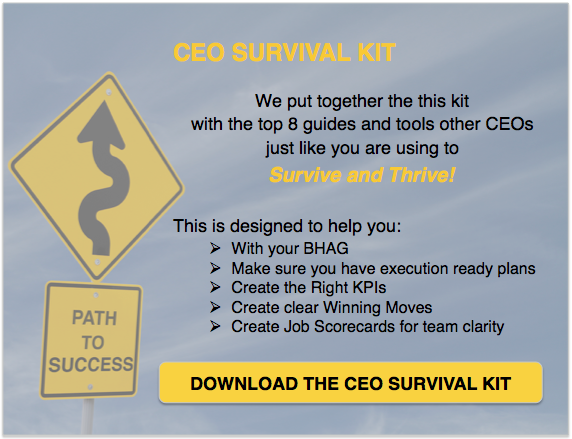“Follow effective action with quiet reflection. From the quiet reflection, will come even more effective  action.” - Peter Drucker
action.” - Peter Drucker
Self-reflection is critical for good leadership, but many leaders struggle to take the time to really reflect. CEOs may not invest the time to be reflective for many reasons, including pressure to spend time getting results. "Sometimes it’s hard to see an immediate ROI on reflection — particularly when compared with other uses of a leader’s time,” as Jennifer Porter explains in a recent Harvard Business Review article. While it can be hard to set aside the time, Col. Eric Kail explains in Washington Post series on leadership that “it is essential for any leader… Reflection is what links our performance to our potential. It is the process of properly unpacking ourselves as leaders for the good of others."
As we embark on a new year, now is the perfect time to engage in some self-reflection. This time last year, our CEO Patrick Thean spent his executive coaching time with his CEO clients creating personal plans for the year. Unlike setting a resolution, which can often seem like an afterthought or an aspiration that lacks real commitment to change, setting a plan for yourself requires the discipline of self-reflection and the accountability of working with a coach. If you want to improve yourself as a leader and as a person in 2018, spend some time reflecting on the questions below and writing out a plan for your year.
Where Are You Now?
Start with taking stock of where you are now in each of these areas; be honest with yourself. Rate yourself 1-5 (1 meaning that you need a lot of work in this area and 5 meaning that this area is the best it could be):
- Family
- Spouse/Partner
- Friends/Relationships
- Fitness/Health
- Faith/Spirituality
- Financial/Wealth
- Career/Achievements
- Adventure/Fun
Once you’ve rated your current state, spend a few minutes thinking about where you want to be a year from now in each of these areas. For example, do you want to maintain the same family relationships in 2018, or do you aspire to invest more time or energy in that area?
Reflect on the Previous Year
Now that you’ve assessed the various areas of your life and thought about what you might like to be different in each area in the future, think specifically about the year that just ended. Answer the following questions:
- What did I enjoy most last year?
- What did I not enjoy or what bogged me down?
- What were my goals last year, and how did I do on them?
- What am I most proud of?
- What are some things I learned from pursuing my goals last year (both positive and negative learnings)?
Consider the New Year
Now, shift gears to think about the year ahead. You can use the Destination Postcard exercise… Imagine yourself a year from now, reflecting jubilantly on an amazing year. Think about what’s different in that great future state, what things happened to make it a great year. And with that in mind, answer these questions:
- What is the #1 most urgent thing that I need to solve in 2018?
- What is ONE area of personal development that I should focus on for 2018?
Set 2018 Goals
With all of this in mind, set your top 3 goals for yourself this year. The goals can be in any area of your life, but don't set more than 3 so that you can stay focused and increase the likelihood of your success. Make the goals SMART, set due dates, use success criteria (like our simple Red-Yellow-Green method), and break them down into the most important 3-5 milestones you’ll have to hit to achieve the goal by the end of the quarter. If you are a Rhythm software user, you can enter these goals as private Priorities or KPIs to hold yourself accountable to statusing them every week this year. You can also enlist the help of an accountability coach; share your goals with someone who can check in with you periodically to see how they are going. You might have a short weekly phone call or email check in with your coach to talk through any challenges or roadblocks that arise and to keep you on track to having a great year.
If self-reflection is challenging for you, you might consider working with an executive coach to help you with this process. Without the time to stop and gain the wisdom from self-reflection, you won’t be able to maximize your effectiveness as a leader and raise the leadership capacity of those whom you are privileged to lead.
If you want to learn more about executive coaching, contact one of our product specialists.
Photo Credit: iStock by Getty Images
Photo Credit: iStock by Getty Images



 LinkedIn
LinkedIn
 Facebook
Facebook
